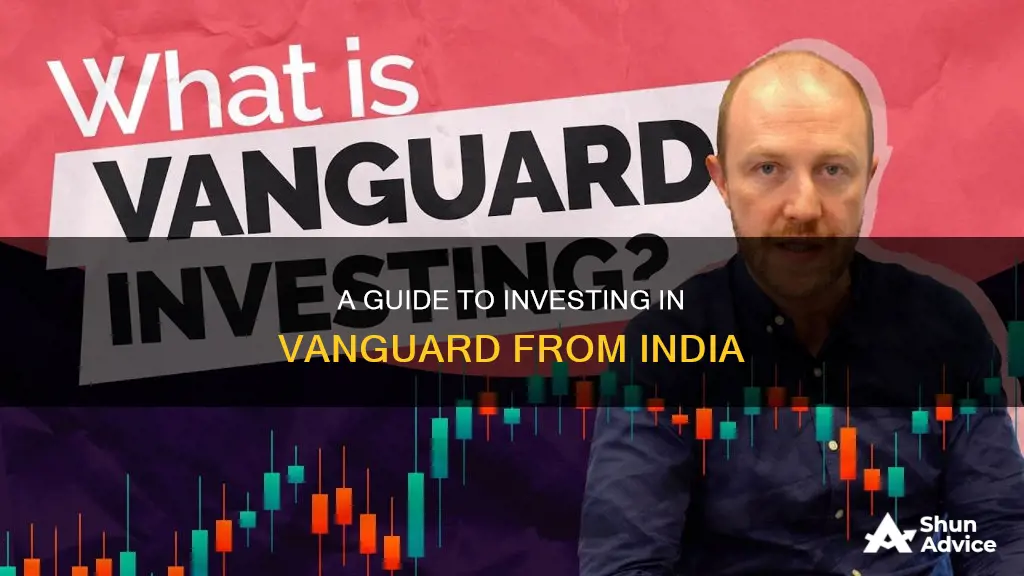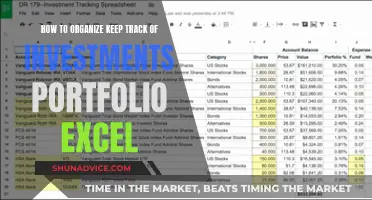
Investing in Vanguard from India is possible, but it can be a complex process. Vanguard is a US-based investment company that offers a range of financial products, including mutual funds and exchange-traded funds (ETFs). While Vanguard does not have a direct presence in India, Indian residents can access their products through certain brokers or investment platforms. One option is to open an account with a US stockbroker that offers access to Vanguard funds, such as Charles Schwab, Interactive Brokers, or Winvesta. These platforms typically require additional documentation, such as a PAN card and ID proof, and may have higher account opening fees and transaction costs. Another option is to invest in Vanguard funds through an Indian mutual fund scheme, such as the Navi US Total Stock Market FoF, which is the first of its kind in India. This scheme provides a gateway for Indians to invest in Vanguard's low-cost passive fund management offerings. Additionally, some Indian investment platforms like Kuvera, Groww, and Vested Finance provide access to US stocks and ETFs, including Vanguard offerings. However, investing internationally can be costly due to deposit and withdrawal charges, currency conversion fees, and complex tax obligations. It is essential to carefully consider these factors and consult with a financial advisor before making any investment decisions.
| Characteristics | Values |
|---|---|
| Investment type | Mutual funds, exchange-traded funds (ETFs) |
| Investment approach | Passive management, indexing |
| Investment objective | Diversification, exposure to overseas markets |
| Investment products | S&P 500 Vanguard ETF, Vanguard Total Stock Market Index Fund ETF, Navi US Total Stock Market FoF |
| Investment process | Online account opening, US stock broker, platforms like Kuvera, Groww, Winvesta, Vested, INDMoney |
| Investment costs | Brokerage commissions, currency conversion charges, account fees, taxes |
| Investment risks | Loss of money, country/regional risk, currency risk, ESG investment risk |
What You'll Learn

Using platforms like Kuvera, Groww, or Winvesta
Kuvera
Kuvera is a popular online investment platform in India that offers a range of investment options, including mutual funds, stocks, and fixed deposits. It is the first 100% free online investment and financial planning platform in India, with no subscription fees, hidden charges, or commissions. Here's how you can use Kuvera to invest in Vanguard:
- Sign up: Create an account on the Kuvera website or app using your email address and mobile number.
- KYC: Complete the Know Your Customer (KYC) process, which is a one-time mandatory procedure for investing in India.
- Explore Investment Options: Browse through the different investment options available on Kuvera, including Vanguard funds. You can use their goal planning feature to identify investments that align with your financial objectives.
- Fund your Account: Add funds to your Kuvera account using a payment method of your choice.
- Place Buy Order: Search for the Vanguard fund you want to invest in and place a buy order.
- Track Investments: Kuvera provides a consolidated view of your investment portfolio, making it easy to track your Vanguard investments and other financial instruments.
Groww
Groww is India's leading stockbroker and trading platform, offering a range of investment options, including mutual funds, stocks, US stocks, ETFs, IPOs, and F&Os. Here's an overview of investing in Vanguard through Groww:
- Sign up: Create an account on the Groww platform and complete the necessary KYC process.
- Explore Investment Options: Search for Vanguard funds on the platform. You can use their objective evaluation tools to analyse different investment options.
- Place Orders: After deciding on the Vanguard fund you want to invest in, place a buy order on the platform.
- Track Investments: Groww provides transparent information about fees and charges associated with your investments. You can also track the performance of your investments and other financial instruments on the platform.
Winvesta
Winvesta is a global financial services company that offers multi-currency accounts and international payment services. While they do not specifically mention Vanguard investments, you can utilise their platform to receive international payments and invest in Vanguard funds. Here's how:
- Sign up: Create an account on Winvesta and complete the necessary account setup process.
- Receive International Payments: If you have earnings or payments from overseas clients, you can use Winvesta to receive money in multiple currencies, including USD, GBP, EUR, and CAD, with low fees and favourable exchange rates.
- Transfer Funds: Once you have received international payments in your Winvesta account, you can transfer these funds to your Indian bank account and then use them to invest in Vanguard funds through another platform like Kuvera or Groww.
In summary, using platforms like Kuvera, Groww, or Winvesta provides a convenient and accessible way for Indian investors to invest in Vanguard funds. These platforms offer a range of features, including investment options, portfolio tracking, and consolidated views of your financial instruments. Be sure to compare the features and fees of each platform before making a decision.
How to Make Your Savings Work for You
You may want to see also

Investing in the S&P 500 Vanguard ETF
The Vanguard S&P 500 ETF (VOO) is an exchange-traded fund (ETF) that tracks the S&P 500 index. It replicates the returns of the index by owning the equities listed on the S&P 500. The S&P 500 represents 500 large-capitalization U.S. companies chosen by analysts at Standard & Poor's, and it is used as a major indicator of overall stock market performance.
The VOO appeals to investors because it is well-diversified and made up of large-cap stocks, which tend to be more stable and have a solid track record of profitability. The fund is heavily weighted in information technology, financials, and healthcare.
Indian investors can purchase the S&P 500 Vanguard ETF (VOO) through two primary methods: direct and indirect investment.
Direct Investment:
To invest directly, Indian investors can open an International Trading Account with a platform such as Angel One. Once the account is opened, investors can add funds in U.S. dollars to buy the S&P 500 Vanguard ETF. It is important to note that investors can also buy fractional shares of the ETF by specifying the purchase amount in dollars.
Indirect Investment:
Indian investors can also invest indirectly in the S&P 500 Vanguard ETF through mutual funds and Exchange-Traded Funds (ETFs) that provide exposure to global stocks. Platforms such as Kuvera offer a convenient way to trade U.S. stocks from India, allowing investors to buy or sell S&P 500 Vanguard ETF stocks after a simple registration process.
- Login to the Kuvera app or website and navigate to the US Stocks section.
- Link your existing Vested US investing account or create a new one.
- Complete the KYC process and fund your US Stock trading account.
- Place a buy order for the S&P 500 Vanguard ETF.
It is important to consider the risks associated with any investment, including the potential for loss. Investors should consult a financial professional before investing in the Vanguard S&P 500 ETF or any other financial instrument. Additionally, investing internationally may incur higher costs due to fees and taxes, so it is essential to carefully evaluate the expenses involved.
India's Infrastructure: A Guide to Investing in its Future
You may want to see also

Investing in the Vanguard Total Stock Market Index Fund ETF
The Vanguard Total Stock Market Index Fund ETF is a diversified exchange-traded fund that seeks to track the performance of the CRSP US total market index for large, mid, and small-cap equity funds. It employs a passively-managed method and an index sampling strategy, remaining fully invested and at low expenses to minimize net tracking errors. The fund has total market equity exposure, including micro-cap funds, and provides neutral coverage.
- Choose a Brokerage Platform: Select a reputable online brokerage platform that allows Indian residents to invest in US stocks and ETFs, such as Vested, Winvesta, INDMoney, or Kuvera. These platforms offer access to US stock markets and provide the ability to trade Vanguard ETFs.
- Open an Account: Sign up and create an account with your chosen brokerage platform. You will typically need to provide personal information, including your PAN card and ID proof. Some platforms may also require additional documentation to comply with regulatory requirements.
- Fund Your Account: After registering, you will need to fund your account by transferring money from your bank to your brokerage account. Be mindful of any applicable fees or charges associated with depositing or converting currency (e.g., INR to USD).
- Search for Vanguard Total Stock Market Index Fund ETF: Once your account is funded, search for the ETF by its ticker symbol, VTI, on your brokerage platform. Review the fund's performance, expenses, and other relevant information before making an investment decision.
- Place a Buy Order: When you are ready to invest, place a buy order for the Vanguard Total Stock Market Index Fund ETF. Specify the amount you wish to invest, ensuring you stay within the limits of your budget and risk tolerance.
- Monitor and Manage Your Investment: After purchasing the ETF, regularly monitor its performance and keep yourself updated with market trends and news. Depending on your investment strategy, you may consider setting up alerts or notifications to track specific price points or market movements.
It is important to note that investing in international markets, such as the US stock market, comes with certain considerations, including complex tax obligations and potential scrutiny from regulatory bodies. Ensure that you thoroughly understand the tax implications and consult with a qualified professional or financial advisor before proceeding.
Additionally, keep in mind that investing in the stock market carries inherent risks, and the value of your investments can fluctuate over time. Diversified index funds like the Vanguard Total Stock Market Index Fund ETF can help mitigate some of these risks compared to investing in individual stocks. However, it is essential to assess your financial situation, goals, and risk tolerance before making any investment decisions.
Exam Strategy: Investment Risk Management Test Timing
You may want to see also

Investing in the Navi US Total Stock Market FoF
The Navi US Total Stock Market FoF offers international exposure and diversification, with access to 4,000+ stocks covering almost 100% of the US Stock Market. It has delivered attractive returns, with a CAGR (in INR terms) of 28.15%, 20.11%, and 20.27% over 1, 5, and 10 years, respectively. The fund has a low expense ratio of just 0.06%, meaning more of your money goes into the investment.
The scheme is suitable for investors seeking capital appreciation over the long term and is ideal for equity investors who want exposure to Vanguard Total Stock Market ETF (VTI) or the Schwab Total Stock Market Index Fund (SWTSX). The fund offers a potential hedge against the depreciation of INR vs USD and has a strong track record of performance and low expense ratio, making it a great addition to a retirement corpus.
To invest in the Navi US Total Stock Market FoF, you can purchase it directly from the website of the fund house, Navi Mutual Fund, or through platforms like MF Central and MF Utility. Most banks also act as mutual fund distributors, so you can connect with your bank for assistance. The minimum SIP amount for the fund is ₹10, and there is no lock-in period.
Managing Investment Biases: Strategies for Objective Financial Decisions
You may want to see also

Understanding the risks of investing in foreign markets
While investing in foreign markets can offer attractive opportunities for Indian investors, it's crucial to be aware of the associated risks and challenges. Here are some key points to consider:
- Currency Exchange Fluctuations: Changes in the value of the Indian rupee against foreign currencies, particularly the US dollar, can significantly impact investment returns. For example, if the rupee weakens against the dollar, your investment gains may be eroded when converted back into rupees.
- Tax Complexities: Navigating the tax regulations and requirements of both India and the foreign country can be complex and time-consuming. Indian residents investing abroad need to comply with tax laws such as disclosing foreign investments in their income tax returns and paying Tax Collected at Source (TCS) on remittances above a certain threshold.
- Geopolitical and Economic Factors: Unpredictable events, such as geopolitical tensions or changes in economic policies, can influence stock prices in both the foreign and domestic markets. These factors can be challenging to anticipate and may affect your investments.
- Market Risk: Investing in foreign markets carries inherent market risk. Factors such as volatility, especially in times of global economic uncertainty, and a lack of familiarity with specific foreign companies can impact your investments. Conducting thorough research and staying informed about global economic trends is essential to mitigate these risks.
- Compliance and Reporting: Overseas investments by Indian residents are subject to compliance and reporting requirements, such as those specified by the Reserve Bank of India (RBI) and the Liberalized Remittance Scheme (LRS). Failure to adhere to these requirements can result in penalties and legal consequences.
- Higher Costs: International investing often attracts higher charges and fees compared to domestic investments. These include account charges, brokerage fees, currency conversion charges, and transfer fees. It is crucial to understand all the associated costs before investing.
- Limited Liquidity: Some foreign investments, particularly in certain sectors or with smaller companies, may have lower liquidity than domestic investments. This can impact your ability to buy or sell these investments quickly and may result in higher transaction costs.
- Country and Regulatory Risk: Investing in a foreign market exposes you to the specific risks of that country, such as political instability, changes in government policies, or economic downturns. These factors can influence the performance of your investments and the ease of transferring funds across borders.
- Information Asymmetry: Foreign markets may have different levels of transparency and information disclosure compared to the Indian market. This can make it challenging to access timely and accurate information about specific companies or sectors, increasing the risk of making uninformed investment decisions.
- Time Zone Differences: Investing in foreign markets may require you to adapt to different time zones, which can impact your ability to monitor your investments actively. Market movements and news during trading hours in the foreign market may occur while you are asleep or unavailable, potentially affecting your investment decisions and reaction time.
By understanding and carefully considering these risks, Indian investors can make more informed decisions when venturing into foreign markets. Conducting thorough due diligence, diversifying their investments, and staying up-to-date with global economic and market trends can help mitigate these risks.
A Beginner's Guide to Commodity Trading in India
You may want to see also
Frequently asked questions
Yes, an Indian citizen can invest in Vanguard. Navi Mutual Fund launched the first Indian mutual scheme to invest in a Vanguard fund in 2022.
There are several online platforms that allow Indian citizens to invest in Vanguard, including Kuvera, Groww, Vested Finance, and Winvesta.
The process varies depending on the platform, but generally, you will need to register and create an account, provide identification and proof of address, fund your account, and then place your order.
Investing in Vanguard as an Indian citizen can be complex from a tax perspective. It is recommended to consult with a tax professional to ensure you are complying with all relevant Indian tax laws and claiming any applicable credits or deductions.







